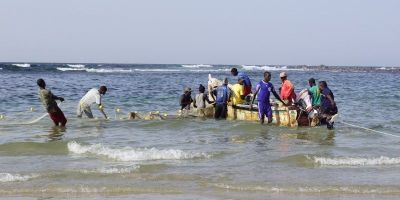School of Earth and Environment researchers recognised in the Research Culture Awards 2024

The Research Culture Awards recognises those who contribute to research success by considering how they collaborate, communicate and interact with one another.
Researchers and research enablers from the School of Earth and Environment (SEE) received awards in three of the five categories.
Diverse Forms of Research Activity
“Gair Wood – Research and teaching woodland for all” won the Award for Diverse Forms of Research Activity.
This award recognises the importance of expanding our traditional definitions of success by:
- recognising the full range of roles contributing to research – teamwork is a vital ingredient in research success, and this award celebrates contributions from research enablers who aren’t always recognised explicitly; and
- celebrating the full range of research outputs – this category recognises the important role of innovative methods or non-traditional outputs in generating excellent research outcomes.
The core members of this team include Dr Cat Scott, Dr Thomas Sloan, Dr Robin Hayward, Stephen Denison and Anna Gugan from SEE, working with James Dixon-Gough, Michael Howroyd, James Wright and Philip Dougill from the Facilities Directorate and Iwan Downey from the White Rose Forest, with valuable contributions from many other students and staff across the University.
Gair Wood is the University of Leeds’ woodland creation project in north Leeds. It aims to improve biodiversity, take up carbon as part of the University’s Climate Plan, provide a resource for the local community and act as a Living Laboratory for teaching and research. The project is a collaboration between the University, the White Rose Forest and the United Bank of Carbon.
Dr Cat Scott says "We're thrilled to receive this award and it's a testament to the very hard work of the many people involved in Gair Wood so far. Establishing Gair Wood has only been possible through close collaboration between researchers from across the University, colleagues from the Sustainability Service, operational staff in the wider Facilities Directorate, students, our external partners, and members of the local community.
The trees are planted but this is still just the beginning of the story for Gair Wood as it evolves into a biodiverse, carbon rich, woodland laboratory and future resource for both the University and wider community."
Equity, Diversity and Inclusion in Research Practices
Projects including researchers from SEE were acknowledged as runners-up in two of the other award categories. “LIFE – Leeds Inclusive Fieldwork Efforts” was the runner-up for the Award for Equity, Diversity and Inclusion (EDI) in Research Practices.
In this project, Professor Martin Zebracki (School of Geography), Dr Sam Wimpenny, Dr Fiona Gill, Dr C Scott Watson, Helena Brown and Dr Robin Hayward developed directions for conducting safer, more inclusive and more equitable research fieldwork.
Supported by Research England Enhancing Research Culture funding, the team conducted focus groups with Leeds researchers to discuss key issues experienced in fieldwork. They translated these findings into written guidance and a high-quality video toolkit addressing safety, inclusivity and equity in fieldwork.
The project resources aim to raise awareness of the diverse challenges that researchers encounter in fieldwork across the globe and provide guidance for creating more inclusive fieldwork environments for researchers of all backgrounds and identities.
Open Research Practices
Jess Payne, Dr John Elliott, Richard Rigby and Dr Andrew Watson received the runners-up award for Open Research Practices for their open-access, online portal for sharing and visualisation of nationwide subsidence data for Iran due to groundwater extraction.
Iran experiences some of the fastest subsidence rates in the world. Locations of differential subsidence pose a severe threat to infrastructure. The researchers developed an open-access, online portal to share updated surface deformation data for over 100 regions across Iran to aid its visualisation.
Their dataset has already supported fieldwork and studies by Iranian researchers, with many investigating subsidence near Tehran, the country’s capital.
Jess Payne said: “We are delighted to be awarded the runner-up prize that recognises our efforts to openly share our deformation results. This subsidence project is, however, just a small example of the efforts being made by remote sensing scientists in SEE to share radar data and derived products to a global audience. Thanks to the wider team of scientists in SEE (specifically within the Institute of Geophysics and Tectonics) who work tirelessly to develop relevant software and manage data storage as without them this work would not be possible.”
Professor Simon Kelley, Head of the School of Earth and Environment said “We are extremely proud to have had these projects and our staff’s contribution to improving our research culture recognised in these awards.”
Congratulations to all who received accolades in the Research Culture Award Ceremony, you can find out about the other winners and the award ceremony on the staff SharePoint.




